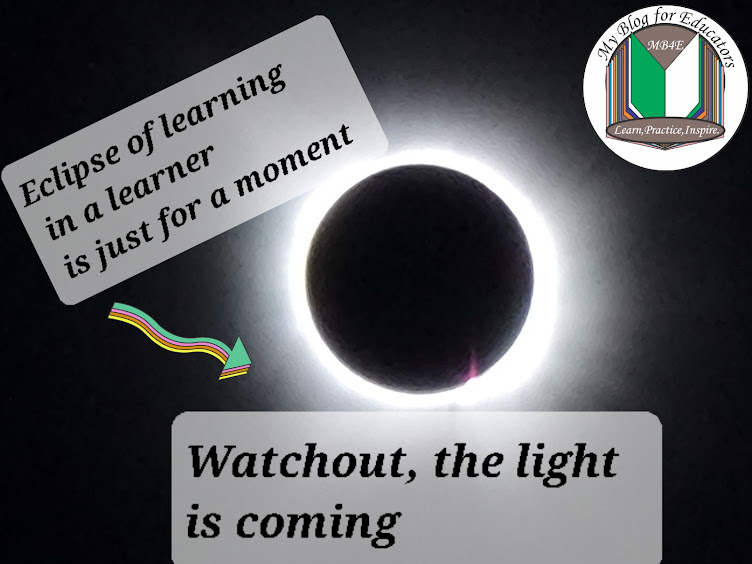Questioning skill, the action skill
As an educator, I have learned that one of the best practices in teaching and learning is the ability to hone my questioning skill. According to Michael .J.Gelb,
Questioning is an old skill that is still valid to
date. Our famous Greek Philosopher, Socrates believed that carefully crafted
questions can be thought-provoking and can trigger meaningful conversation with
the learners. The teacher should act ignorant of the question and the answer.
Through questioning skills, learners are informed that
the environment is looking for answers to problems and there is a need to find
them. It is a time to inform learners that they are problem solvers who can
meaningfully construct by deep thinking.
As a biology educator, I don't deal with bulky notes, instead, I use questioning methods to engage my learners in conversation. With this method, their learning channels and curiosity are open, and their opinions are evoked for answers to emerge. They will begin to think and reason critically to solve any problem. I believe that questioning skill is an asset to the teaching profession because it offers insight into different aspects of problem-solving.
Teachers can properly learn how to use this skill. This
is because it is crucial. It is necessary to know the type and the right type
of question to ask. Ensure that any question you deploy in your classroom can
be able to trigger curiosity and as well raise the bar of the learners'
critical thinking skills.
Learners are not to be allowed to stay at the Lower
critical thinking order. The questions that teachers ask their learners should
be able to usher them into a meaningful engagement that will make them think
higher.
There are so many benefits attached to questioning
skill
1. Questioning is a great way to get students engaged
2. The skill evokes curiosity and opinions in learners
3. It promotes critical thinking skills
4. Promotes problem-solving
5 It helps learners take ownership of what they are
learning
6. Questioning skills enable learners to remember and
understand what they've been taught and be able to apply what they have learned
in real-life contexts.
7. Help teachers to decide whether to re-teach the
lesson or move on to the next topic
.How can we develop the right questions for our
learners
This requires common sense but questions developed by
teachers should involve a variety of; levels; from lower critical thinking
order to higher critical thinking order. That means there is a need to
understand Bloom's taxonomy very well. Teachers should learn to pause after
asking questions to allow the learners time to respond.
For example instead of simply asking your learners to
Define living things and list three or four
characteristics of living things, you can simply put it this way (Remember,
this is just an example).
Mr. Oken has a green cassava field. Shasha's cow
with a calf in a loose, open range entered the field and ate the cassava
leaves. Mr Oken on arriving at the site shouted with a loud voice at Shasha's
Cow and Calf. On the move to chase them away stepped on cow dung.
How many living things were mentioned in the
passage?
Identify the characteristics of living things and
write the corresponding statement from the passage.
Shasha left her cow and the calf on a loose range.
As a farmer, what was she supposed to do to protect Mr Oken's cassava farm?
In both questions above, which will improve the
learners' critical thinking skills?
Drop your comments below. I can’t wait for the conversations to begin. Remember,








No comments:
Post a Comment